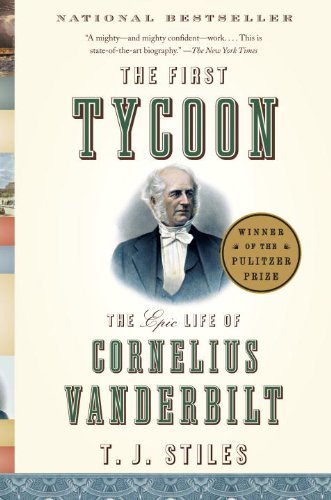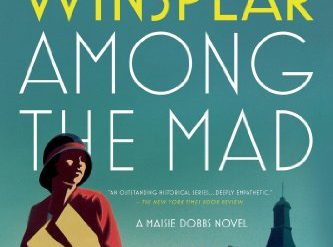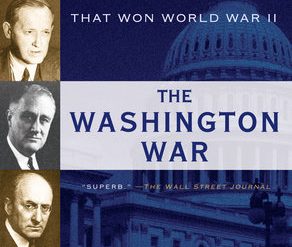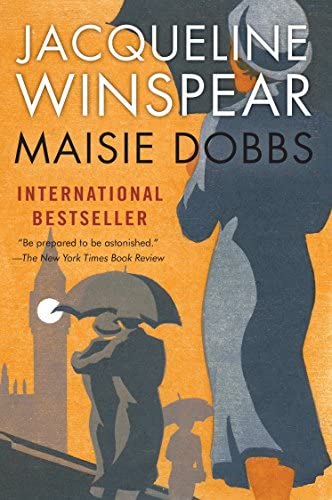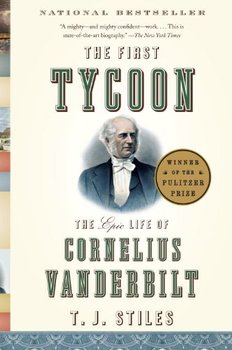
I’ve read a lot of biographies and memoirs since I began posting book reviews in January 2010. I’m listing here ninety titles that I can recommend, omitting many that underwhelmed me (in addition to others I couldn’t finish reading).
This post was updated on July 24, 2024.
These books cover a wide range of both historical and contemporary figures, every one of them prominent in a significant way, from Cleopatra and Catherine the Great to Clarence Darrow, Allen Dulles, and Steve Jobs.
As you can see, most of these 90 biographies and memoirs fall into a few categories that describe some of the topics I’m most interested in: espionage, science, business, and American history. The categories are arbitrary: many of these books fall into more than one. However, I chose just one for each book, not wanting to list any titles twice. Each title below is hyperlinked to my review.
Although I was forced to be somewhat arbitrary, my 12 favorite great biographies appear in the first list below. Those titles are later repeated in the four categories.
Within each of the five lists, titles appear in alphabetical order by the authors’ last names.
Great biographies: my 12 favorites
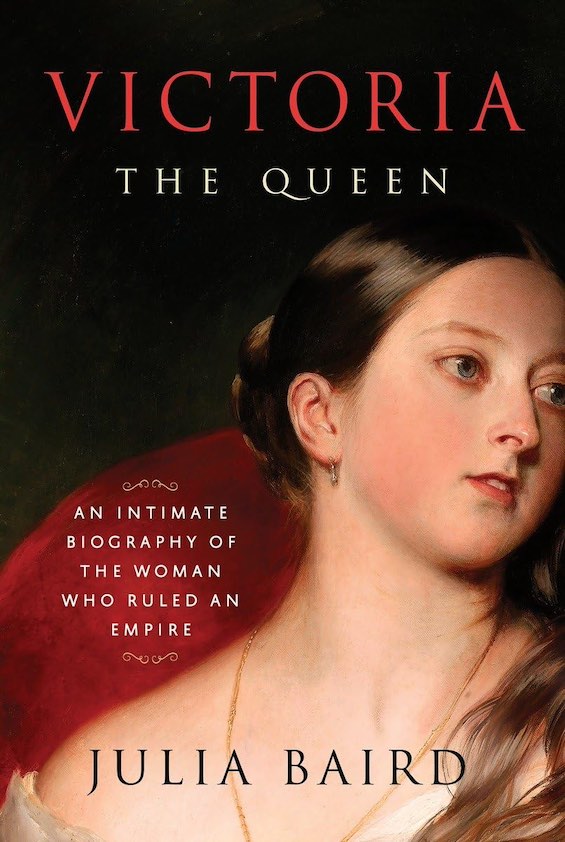
Victoria, the Queen: An Intimate Biography of the Woman Who Ruled an Empire by Julia Baird
When we think today of an English Queen, we tend to conjure up the benevolent figure of Elizabeth II, waving from the balcony at Buckingham Palace or from the back seat of a car. Of course, if we read English history—or if we’ve watched the popular Netflix series, The Crown—we know more than that. For example, we’re aware that the demands of constitutional monarchy strictly circumscribe the Queen’s role. Elizabeth II had no political role whatsoever. Her job was merely to accept the will of her subjects and deal with the hand Parliament dealt her. For her son, Charles III, it’s no different. But that was emphatically not true with her great-great grandmother, Queen Victoria, who ruled Great Britain from 1837 to 1901, imprinting her name on an era. And Julia Baird makes that case with penetrating clarity in her masterful biography of Queen Victoria. Read the review.
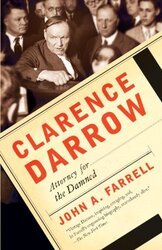
Clarence Darrow: Attorney for the Damned, by John A. Farrell
He was a radical in the age of laissez faire. “With the land and possessions of America rapidly passing into the hands of a favored few; with thousands of men and women in idleness and want; with wages constantly tending to a lower level . . . with the knowledge that the servants of the people elected to correct abuses are bought and sold in legislative halls at the bidding of corporations and individuals; with all these notorious evils sapping the foundations of popular government and destroying personal liberty, some rude awakening must come.” That was the legendary attorney Clarence Darrow (1857-1938): champion of labor, a founding director of the NAACP and co-founder of the ACLU, “the country’s most prominent and outspoken atheist,” advocate of free love, “Jefferson’s heir—his time’s foremost champion of personal liberty,” a superstar of the Gilded Age. Read the review.
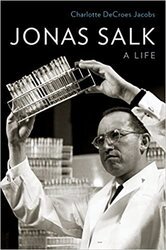
Jonas Salk: A Life, by Charlotte DeCroes Jacobs
Headlines around the world in the spring of 1955 triumphantly announced that “Polio is Defeated!” A young doctor, barely more than forty years old, had developed a safe and effective vaccine with financial support exclusively from what was popularly known as the March of Dimes. Dr. Jonas Salk become an instant global star. Charlotte DeCroes Jacobs, both a physician and a biographer, has written what may be the definitive story of the man’s life. It’s an outstanding piece of work, and an eye-opener. Read the review.
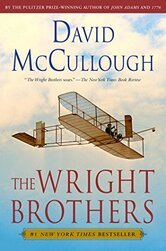
The Wright Brothers, by David McCullough
In a world awash with praise for digital pioneers such as Steve Jobs and Bill Gates, it’s all too easy to forget some of the extraordinary people who have shaped our world through business. We remember Thomas Edison, of course: the harnessing of electricity is impossible to overlook. But we recall Henry Ford, Andrew Carnegie, and John D. Rockefeller as much because of all the money they made as well as their accomplishments in business. Others did work that was just as consequential for our society. Wilbur and Orville Wright are certainly among them. How often do their names come up today? Read the review.
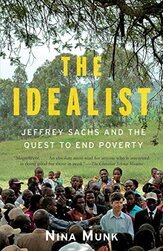
The Idealist: Jeffrey Sachs and the Quest to End Poverty, by Nina Munk
It’s difficult even to dip your toes into the field of poverty without tripping over the Millennium Villages Project. So extensive has been the coverage of this ambitious—some would say — that scholars may spend years sifting through the documented record. But anyone curious about the Millennium Villages need only read The Idealist, financial journalist Nina Munk’s eminently readable and extensively researched account of the Project and the extraordinarily gifted man who conceived and forced it on the world’s consciousness. Munk’s first-hand account should stand for years as the authoritative judgment on this ill-considered venture. Read the review.
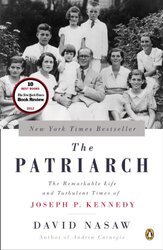
The Patriarch: The Remarkable Life and Turbulent Times of Joseph P. Kennedy, by David Nasaw
This was the man who fathered John Fitzgerald Kennedy, the 35th president of the United States, as well as two other leading candidates for the office. His life was the stuff of classical tragedy, not Shakespearean but Greek in its primal ferocity. He lost his oldest daughter to a botched lobotomy in 1941, his oldest son to a suicide mission in World War II, another daughter to a plane crash shortly afterwards, and two sons to assassination in the 1960s.
Though he never held public office higher than that of SEC Chairman and Ambassador to England, he was one of the most influential people of his time, alternately revered and reviled. As much as any single person, Joe Kennedy shaped the studio system that dominated Hollywood for decades. In 1957, The New York Times named him as one of the fifteen richest men in the country, with a fortune then estimated by Forbes that was the equivalent of billions of dollars today. Read the review.
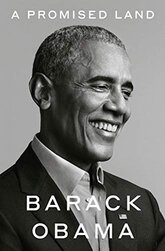
A Promised Land by Barack Obama
You might expect a political memoir to offer up a smorgasbord of self-justification and score-settling. Many such autobiographical works are that and little more. But that is most assuredly not the case with Barack Obama’s A Promised Land. In this first of two planned volumes, the forty-fourth President eloquently conveys what it’s like to live in the White House and raise a family while the world lurches from one crisis to the next. What emerges, above all, is a self-portrait of a complete human being, fully in command in the most challenging job in the world and passionately committed to his family but subject to the same self-doubt as so many of us. This is the real Barack Obama—cranky at times, profane in private, but undeniably brilliant, charismatic, unfailingly generous to his staff, and always at his best when the pressure’s greatest. Read the review.
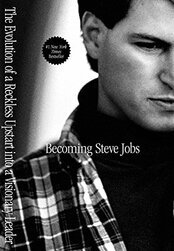
Becoming Steve Jobs: The Evolution of a Reckless Upstart Into a Visionary Leader, by Brent Schlender and Rick Tetzeli
Becoming Steve Jobs has been enthusiastically received by the people who knew him best: those he worked with at Apple and Pixar, and his peers in Silicon Valley. By contrast, the reception in the Valley for Walter Isaacson’s much better-known (and better-selling) book was mixed at best, despite the rave reviews it received in all the right places (The New York Times, The New York Review of Books, The Guardian, The New Yorker, and so forth). I loved it, too. But I didn’t know the man. Schlender and Tetzeli did, and for many years before Jobs enlisted Isaacson in 2009 to write his authorized biography. Read the review.
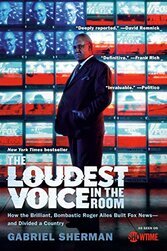
The Loudest Voice in the Room: How the Brilliant, Bombastic Roger Ailes Built Fox News — and Divided a Country, by Gabriel Sherman
As a teenager growing up in the 1950s in Lima, Ohio, (population 50,000), I learned that our local daily, The Lima News, had been purchased by a man named R. C. Hoiles. Hoiles lived in Orange County, California, and was a member of the John Birch Society. He owned a chain of small-town newspapers which he called (surprise!) Freedom Newspapers. I didn’t know any of that at the time, though. What I knew was just what I read in the News: editorials denouncing the “socialistic” concept of free public schools and paeans to Senator Joseph McCarthy, the drunken liar and bully who claimed to see Communists under every desk. Decades later, Roger Ailes built the Fox News Network to advance the same Right-Wing agenda. Read the review.
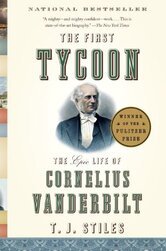
The First Tycoon: The Epic Life of Cornelius Vanderbilt, by T. J. Stiles
He was the first robber baron. Other familiar names associated with the nineteenth century—John D. Rockefeller, Andrew Carnegie, J. P. Morgan—were young men in the early days of their careers when he was at the peak of his fame. Following the Civil War, he became the richest person in American history, and to this day remains the second-richest, bested only by Rockefeller. (Yes, richer by far than Jeff Bezos, Bill Gates, and Warren Buffett, insofar as such things can be determined.) More importantly, he was one of the original architects of the modern corporation, “consolidating” one regional railroad into another to form one of the country’s first massive, impersonal corporations. And he single-handedly restored order and stabilized the US economy in the midst of one of the most severe financial panics in our history. Read the review.
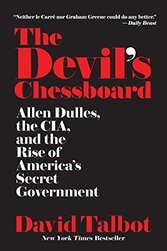
The Devil’s Chessboard: Allen Dulles, the CIA, and the Rise of America’s Secret Government, by David Talbot
If you’re familiar with mid-twentieth century American history, you’ll know the name Allen Dulles (1893-1969), who served as the director of the CIA through the tense years of the Eisenhower Administration and remained in office until John F. Kennedy fired him in 1961. Now, investigative journalist David Talbot has written an eye-opening new biography of the man. Talbot has delved more deeply into the record than previous biographers and taken a far more critical look at Dulles’ career in The Devil’s Chessboard: Allen Dulles, the CIA, and the Rise of America’s Secret Government. The picture that emerges is shattering. Read the review.
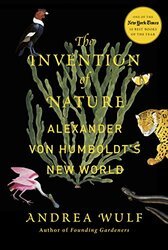
The Invention of Nature: Alexander von Humboldt’s New World, by Andrea Wulf
He was the most famous man in the world, and more places around the world are named after him than anyone else. To many of the giants of his time—Johann Wolfgang von Goethe, Thomas Jefferson, Simon Bolivar, Charles Darwin, Henry David Thoreau—he was a colossus whose genius overshadowed their own. He was the first to describe the web of life on Earth, foreshadowing James Lovelock’s Gaia hypothesis, and the first to describe the impact of human activity on the world’s climate. His books, which read like poetry, “were so popular that people bribed booksellers to be the first to receive copies.” Eleven years after his death at age 89, the centennial of his birth was observed by hundreds of thousands of people in huge celebrations around the world. Read the review.
Other readable biographies
Great biographies: science
The Man Who Shocked the World: The Life and Legacy of Stanley Milgram, by Thomas Blass
The Riddle of the Labyrinth: The Quest to Crack an Ancient Code by Margalit Fox
Big Science: Ernest Lawrence and the Invention that Launched the Military-Industrial Complex, by Michael Hiltzik
The Code Breaker: Jennifer Doudna, Gene Editing, and the Future of the Human Race by Walter Isaacson
Jonas Salk: A Life, by Charlotte DeCroes Jacobs
The Brothers Vonnegut: Science and Fiction in the House of Magic, by Ginger Strand
The Hidden Habits of Genius: Beyond Talent, IQ, and Grit—Unlocking the Secrets of Greatness by Craig M. Wright
The Invention of Nature: Alexander von Humboldt’s New World, by Andrea Wulf
Great biographies: business
The Fish That Ate the Whale: The Life and Times of America’s Banana King, by Rich Cohen
The Monk of Mokha by Dave Eggers
The Talented Mrs. Mandelbaum: The Rise and Fall of an American Organized-Crime Boss by Margalit Fox
From Silk to Silicon: The Story of Globalization Through Ten Extraordinary Lives by Jeffrey E. Garten
The Man Who Broke Capitalism: How Jack Welch Gutted the Heartland and Crushed the Soul of Corporate America—and How to Undo His Legacy by David Gelles
Steve Jobs, by Walter Isaacson
Elon Musk by Walter Isaacson
The Last Kings of Shanghai: The Rival Jewish Dynasties That Helped Create Modern China by Jonathan Kaufman
A Truck Full of Money: One Man’s Quest to Recover from Great Success by Tracy Kidder
The Wright Brothers, by David McCullough
The Sassoons: The Great Global Merchants and the Making of an Empire by Joseph Sassoon
The Founders: The Story of PalPal and the Entrepreneurs Who Shaped Silicon Valley by Jimmy Soni
Becoming Steve Jobs: The Evolution of a Reckless Upstart Into a Visionary Leader, by Brent Schlender and Rick Tetzeli
The First Tycoon: The Epic Life of Cornelius Vanderbilt, by T. J. Stiles
Elon Musk: Tesla, SpaceX, and the Quest for a Fantastic Future, by Ashlee Vance
Great biographies: American history
Pelosi, by Molly Ball
American Crucifixion: The Murder of Joseph Smith and the Fate of the Mormon Church, by Alex Beam
The Admirals: Nimitz, Halsey, Leahy, and King—The Five-Star Admirals Who Won the War at Sea by Walter R. Borneman
The First American: The Life and Times of Benjamin Franklin by H. W. Brands
The Passage of Power (The Years of Lyndon Johnson #4 of 5), by Robert A. Caro
Vanderbilt: The Rise and Fall of an American Dynasty by Anderson Cooper and Katherine Howe
Let the People Rule: Theodore Roosevelt and the Birth of the Presidential Primary by Geoffrey Cowan
American Disruptor: The Scandalous Life of Leland Stanford by Roland de Wolk
Clarence Darrow: Attorney for the Damned, by John A. Farrell
The Trials of Harry S. Truman: The Extraordinary Presidency of an Ordinary Man, 1945-1953 by Jeffrey Frank
Yippie Girl: Exploits in Protest and Defeating the FBI by Judy Gumbo
Rebel Cinderella: From Rags to Riches to Radical, the Epic Journey of Rose Pastor Stokes by Adam Hochschild
Brothers, Rivals, Victors: Eisenhower, Bradley, Patton and the Partnership That Drove the Allied Conquest in Europe by Jonathan W. Jordan
Freedom’s Detective: The Secret Service, the Ku Klux Klan and the Man Who Masterminded America’s First War on Terror by Charles Lane
Malcolm X: A Life of Reinvention, by Manning Marable
The Patriarch: The Remarkable Life and Turbulent Times of Joseph P. Kennedy, by David Nasaw
Eisenhower: The White House Years by Jim Newton
A Promised Land by Barack Obama
The Loudest Voice in the Room: How the Brilliant, Bombastic Roger Ailes Built Fox News — and Divided a Country, by Gabriel Sherman
Hidden Figures: The Story of the African-American Women Who Helped Win the Space Race by Margot Lee Shetterly
Water to the Angels: William Mulholland, His Monumental Aqueduct, and the Rise of Los Angeles, by Les Standiford
Custer’s Trials: A Life on the Frontier of a New America, by T. J. Stiles
America’s Social Arsonist: Fred Ross and Grassroots Organizing in the Twentieth Century, by Gabriel Thompson
David Brower: The Making of the Environmental Movement, by Tom Turner
Bobby Kennedy: The Making of a Liberal Icon by Larry Tye
One Man Against the World: The Tragedy of Richard Nixon, by Tim Weiner
Great biographies: espionage
Lawrence in Arabia: War, Deceit, Imperial Folly and the Making of the Modern Middle East, by Scott Anderson
Cracking the Nazi Code: The Untold Story of Agent A12 and the Solving of the Holocaust Code by Jason Bell
The Good Spy: The Life and Death of Robert Ames, by Kai Bird
Hitler’s Spy Chief: The Wilhelm Canaris Story by Richard Bassett
The Catcher Was a Spy: The Mysterious Life of Moe Berg by Nicholas Dawidoff
A Spy at the Heart of the Third Reich: The Extraordinary Story of Fritz Kolbe, America’s Most Important Spy in World War II by Lucas Delattre
The Woman Who Smashed Codes: A True Story of Love, Spies, and the Unlikely Heroine Who Outwitted America’s Enemies by Jason Fagone
Nancy Wake: The gripping true story of the woman who became the Gestapo’s most wanted spy by Peter FitzSimmons
King of Spies: The Dark Reign of an American Spymaster by Blaine Harden
The Brothers: John Foster Dulles, Allen Dulles, and Their Secret World War, by Stephen Kinzer
Code Name: Lise: The True Story of the Woman Who Became World War II’s Most Highly Decorated Spy by Larry Loftis
A Spy Among Friends: Kim Philby and the Great Betrayal, by Ben MacIntyre
An Impeccable Spy: Richard Sorge, Stalin’s Master Agent by Owen Matthews
The Ghost: The Secret Life of CIA Spymaster James Jesus Angleton by Jefferson Morley
Man of Tomorrow: The Relentless Life of Jerry Brown by Jim Newton
Spies in Palestine: Love, Betrayal, and the Heroic Life of Sarah Aaronsohn by James Srodes
Agent Storm: My Life Inside Al Qaeda and the CIA, by Morten Storm, Paul Cruickshank, and Tim Lister
The Devil’s Chessboard: Allen Dulles, the CIA, and the Rise of America’s Secret Government, by David Talbot
Wild Bill Donovan: The Spymaster Who Created the OSS and Modern American Espionage, by Douglas Waller
Other outstanding biographies
Unscripted: The Epic Battle for a Hollywood Media Empire and the Redstone Family Legacy by Rachel Abrams and James B. Stewart—Drama in a real-life version of “Succession”
Victoria, the Queen: An Intimate Biography of the Woman Who Ruled an Empireby Julia Baird—An eye-opening biography of Queen Victoria
Big Sister, Little Sister, Red Sister: Three Women at the Heart of Twentieth-Century China by Jung Chang—They shaped twentieth-century Chinese history
Last Call at the Hotel Imperial: The Reporters Who Took on a World at War by Deborah Cohen
The Lion House: The Coming of a King by Christopher de Bellaigue
The Great Successor: The Divinely Perfect Destiny of Brilliant Comrade Kim Jong Un by Anna Fifield
The Man Without a Face: The Unlikely Rise of Vladimir Putin, by Masha Gessen
The Plantagenets: The Warrior Kings and Queens Who Made England by Dan Jones
Stalin: New Biography of a Dictator by Oleg V. Khlevniuk
Strength in What Remains: A Journey of Remembrance and Forgiveness by Tracy Kidder
Bess of Hardwick: Empire Builder by Mary S. Lovell
The West: A New History in Fourteen Lives by Naoise Mac Sweeney
Catherine the Great: Portrait of a Woman, by Robert K. Massie
Darkest Hour: How Churchill Brought England Back from the Brink by Anthony McCarten
The Idealist: Jeffrey Sachs and the Quest to End Poverty, by Nina Munk
Astounding: John W. Campbell, Isaac Asimov, Robert A. Heinlein, L. Ron Hubbard, and the Golden Age of Science Fiction by Alec Nevala-Lee
Cleopatra: A Life, by Stacy Schiff
And So It Goes — Kurt Vonnegut: A Life, by Charles J. Shields
Putin by Philip Short
No Ordinary Men: Dietrich Bonhoeffer and Hans von Dohnanyi, Resisters Against Hitler in Church and State by Elisabeth Sifton and Fritz Stern—They were leaders in the resistance to Hitler
The White Ship: Conquest, Anarchy, and the Wrecking of Henry I’s Dream by Charles Spencer
Karl Marx: A Nineteenth-Century Life, by Jonathan Sperber
Party of One: The Rise of Xi Jinping and China’s Superpower Future by Chun Han Wong
Last Boat Out of Shanghai by Helen Zia
For related reading
This post is one of My 10 top reading recommendations.
You might also be interested in 20 top nonfiction books about history and Top 20 popular books for understanding American history.
You might also care to take a look at M: Son of the Century by Antonio Scurati (An in-depth biographical novel about Benito Mussolini).
For an egregious example of a literary biography gone wrong, see Trinity by Louisa Hall (Don’t be fooled. This novel is not about Oppenheimer.).
And you can always find my most popular reviews, and the most recent ones, on the Home Page.

